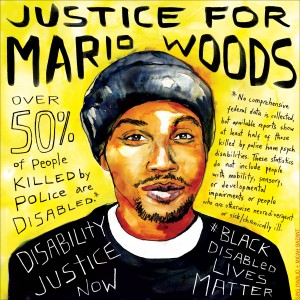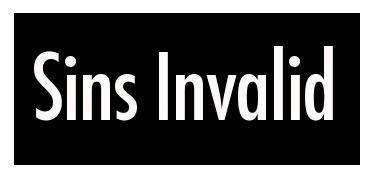ACCESS SUGGESTIONS FOR MOBILIZATIONS
In support of our current collective uprising, we offer these suggestions for making sure that your actions/ marches/ mobilizations include as many of us as possible.
This work is ideally done from a deeper political commitment to disability justice, or at minimum a critique of ableism and an understanding of consent; otherwise paternalism and abuse can masquerade as “access support.”
- Always have a Disability Point Person. Announce them from the mic; have them wear an armband for visibility. Their skills should include a disability justice framework, problem solving, and good listening.
- Announce that the event will be fragrance free; ask people who are heavily scented to self-segregate.
- Generally speaking, written text offers an additional mode of communication.
- To support accessibility for folks that are DHoH / for those who can’t hear the mic
- have an ASL interpreter at the mic
- use slips of paper to communicate the nuts and bolts of logistics (possibly with chants, to communicate destinations, the National Lawyers Guild’s #, etc.)
- have ASL interpreters in the crowd
- Organize push wheelchairs in advance for people who may need them; announce their availability from the mic
- Organize low stimulation spaces near the main gathering space (e.g. a room, or tent); announce from the mic
- Organize childcare and changing stations; announce from the mic
- Organize multilingual translation services; announce from the mic
- Have the tactical team spread throughout mobilizations (e.g. the four quadrants)
- Rent walkie-talkies. More information = better access. Be mindful that police escalation needs to be communicated with participants in a calm manner, and will impact some more than others.
- Provide chairs (folding chairs, mobile bleachers, etc.) for rallies / gatherings where people can expect to be standing for 20 min or more. Announce their location from the mic and explain that they are for people with disabilities, elders, and others who cannot stand for a length of time.
- Do a march route run-through with mobility in mind – possibly seated in a wheelchair or in an abandoned shopping cart (e.g. looking for grids, grassy areas, hills, holes, etc.)
- Invite people with disabilities if they would like to set the pace of the march by being at the front
- Give an auditory description of the march route beforehand
- Make an announcement before the march regarding the destination and distance of the route, so that folks can choose to meet the march there.
- DO NOT “direct” folks with mobility impairments to where you think they should be; you can offer respectful suggestions; no one should be hurried along - ideally the slowest pace should set the pace of the march; no one should touch people or their mobility devices without their consent.
- Organize a car or van to drive elders and people with disabilities from the beginning to the end of the march. Provide seating at the destination.
- Have distinct tactical and safety teams
- Police liaisons should be communicating with police that there are participants with disabilities (and elders, pregnant folks, etc) and that the march intends to respect that pace.
- Be aware that cops will often target folks with disabilities as perceived “weak links”; cops target folks at the end of actions as energy dissipates.

[Image description: Watercolor painting of a young Black man's face and shoulders, on a yellow background. He wears a black beanie and a black sweatshirt and has a goatee. He is gazing intensely at the viewer. Large handwritten text above him says "Justice for Mario Woods". Handwritten text to his left says "Over 50% of people killed by police are disabled". Handwritten text to his right says "No comprehensive federal data is collected, but available reports show at least half of those killed by police have psych disabilities. These statistics do not include people with mobility, sensory, or developmental impairments or people who are otherwise neurodivergent or sick/chronically ill ". Handwritten text on his sweatshirt says "Disability Justice Now" and "# #BlackDisabledLivesMatter". Art by Sins Invalid and Micah Bazant]
